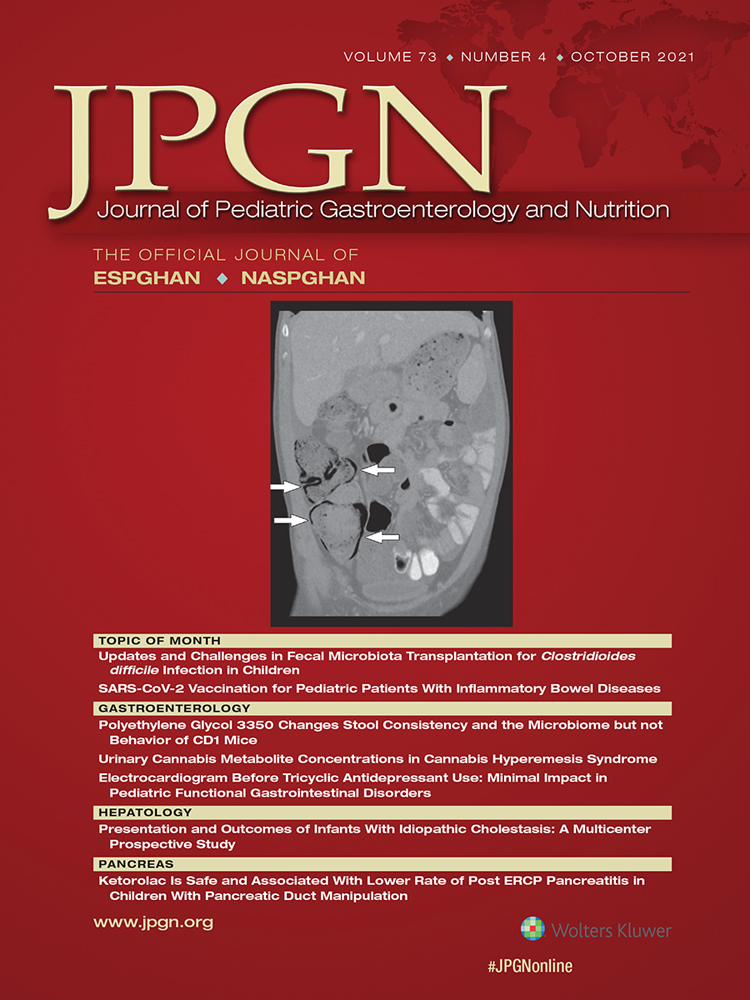Clinical Predictors and Outcomes for Recurrent Pneumatosis Intestinalis in Children
A Case Control Study
Source of Funding: NIH T32 DK007727-ADT.
The authors report no conflicts of interest.
Author Contributions: A. Ta: Primary author who generated the concepts, acquisition of clinical documentation, performed statistical analysis, drafting manuscript, and final compiling of manuscript for submission.
M. Farrell: Provided guidance for concept generation, reviewed abstract, presented work at national conference, reviewed, and provided edits to manuscript.
J. Dillman: Provided guidance for concept generation, reviewed all images for diagnosis of pneumatosis, reviewed abstract, reviewed, and provided guidance for manuscript generation.
A. Trout: Provided guidance for concept generation, reviewed all images for diagnosis of pneumatosis, reviewed abstract, reviewed, and provided guidance for manuscript generation.
Supplemental digital content is available for this article. Direct URL citations appear in the printed text, and links to the digital files are provided in the HTML text of this article on the journal's Web site (www.jpgn.org).
ABSTRACT
Introduction:
Pneumatosis intestinalis (PI) is air collections within the wall of the intestine that can be associated with life threatening conditions. Recurrent episodes of PI have been reported; however, little is known about risks for recurrent disease. This study aims to identify predictors of recurrent PI and evaluate long-term outcomes in patients with recurrent PI.
Methods:
This retrospective case-control study evaluated patients, ages 6 months to 18 years, with imaging evidence of PI over a 30-month period. Images were analyzed by consensus to confirm PI. Recurrent PI was defined as new findings of PI after resolution by imaging and/or at least 1-month interval between episodes of PI. Univariate and multivariable analyses were performed using logistic regression, with significance set to P < 0.05.
Results:
Forty-six children were included. Recurrent PI occurred in 17 (37%) patients, with a total of 39 episodes. Predictors of recurrent PI all related to the segment of bowel involved with small bowel PI predictive of recurrent PI (odds ratio [OR] 1.6; 95% confidence interval [CI] 1.01, 2.4) and colonic PI protective (OR 0.6; 95% CI 0.4, 0.87) after adjusting for age. Predictors for surgical intervention included cerebral palsy (OR 17; 95% CI 1.7, 167) and PI involving small bowel (OR 19; 95% 3.1, 114).
Conclusion:
Location of PI is predictive of recurrence. Clinical outcomes were similar between groups with single episode and recurrent PI.




